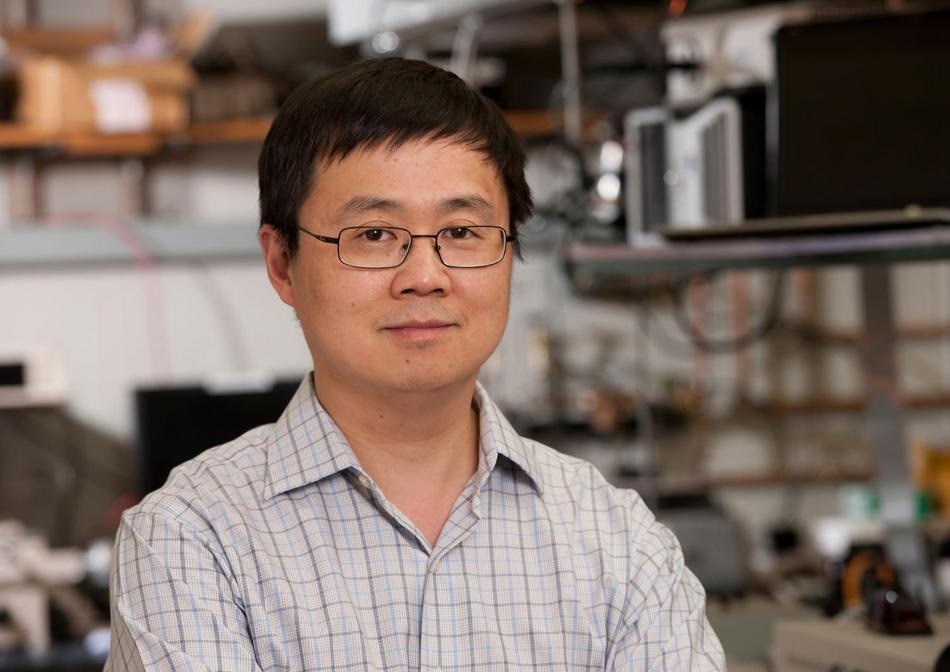Jun 29 2017
The University of Pittsburgh Swanson School of Engineering will receive $1.275 million from the United States Department of Energy (DOE) for collaborative research that includes the Massachusetts Institute of Technology’s Reactor Laboratory, the National Energy Technology Laboratory and Westinghouse Electric Corporation. The award is part of $66 million awarded by DOE to promote ground-breaking nuclear technologies.
 Pitt's Dr. Kevin Chen in his lab where he is developing new sensor technology that can tolerate the harsh environment of a nuclear reactor while providing more data to improve safety. (CREDIT: Swanson School of Engineering/Ric Evans)
Pitt's Dr. Kevin Chen in his lab where he is developing new sensor technology that can tolerate the harsh environment of a nuclear reactor while providing more data to improve safety. (CREDIT: Swanson School of Engineering/Ric Evans)
Kevin Chen, the Paul E. Lego Professor of Electrical and Computer Engineering at Pitt, will head the collaborative research to build multi-functional, radiation-hard, distributed fiber sensors and sensor-fused components that can be incorporated in a nuclear reactor core to enhance efficiency and safety. The grant is from the Nuclear Energy Enabling Technologies (NEET) program, part of the DOE’s Nuclear Energy University Program (NEUP).
This NEET grant will allow our lab to continue its partnerships with leading technological companies and national laboratories to develop solutions to some of the most pressing issues affecting nuclear energy production. Advances in sensor technology can greatly enhance the sensitivity and resolution of data in harsh environments like a nuclear reaction, thereby improving safety operations.
Dr. Kevin Chen, the Paul E. Lego Professor of Electrical and Computer Engineering at Pitt
The research will concentrate on fabricating the optic sensors using additive manufacturing and advanced laser fabrication methods. According to the funding report by the DOE, the team will create both high-temperature stable point sensors and distributed fiber sensors for high spatial resolution measurements in radiation-hardened sapphire and silica fibers.
In 2014, Dr. Chen received a $987,000 grant from the NEET program to explore high sensitivity, high accuracy sensor networks. These fiber optical sensor networks allow Nuclear Engineers to be a lot more responsive to issues in the nuclear power reactors and fuel cycle systems, enhancing safety and decreasing operating cost.
The networks we developed contain up to 100 sensors per meter and can be placed in critical locations to quickly relay information to the plant operators and isolate problems before they spread to other areas.
Dr. Kevin Chen, the Paul E. Lego Professor of Electrical and Computer Engineering at Pitt
Besides the NEET grants, the DOE NEUP program has given the University of Pittsburgh $2.8 million between 2009 and 2016:
- Two research and development projects: $1,676,422
- General scientific infrastructure funding: $300,000
- 11 scholarships: $70,000
- Five fellowships: $770,000
Dr. Chen was given a 2017 Carnegie Science Award for his work on fiber optical sensing technology. The “Innovation in Energy Award” recognized Dr. Chen’s efforts to enhancing efficiency of energy production and safety of transportation infrastructures in the energy sector.